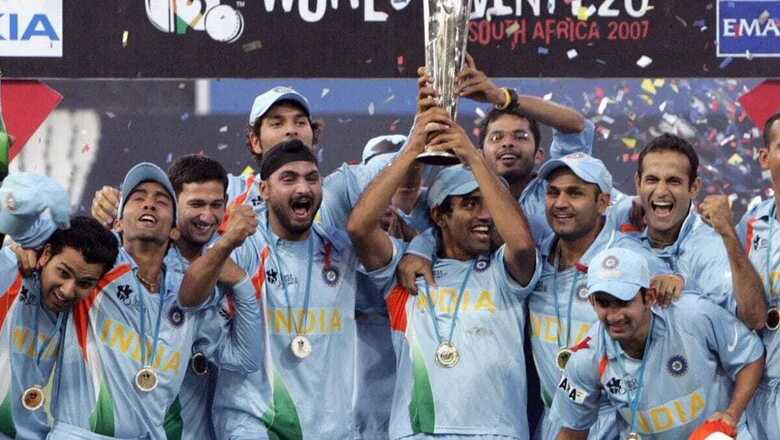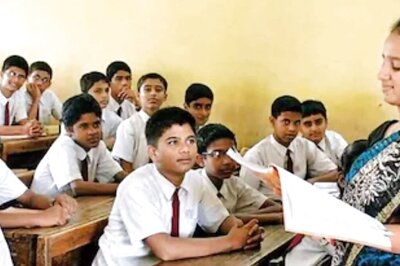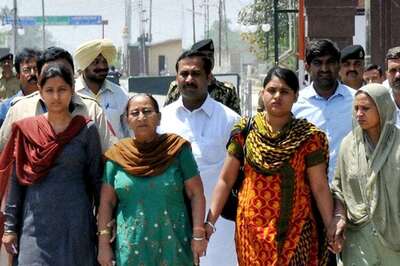
views
India were the inaugural winners of the ICC Men’s T20 World Cup, claiming the title in 2007 under MS Dhoni. Since then, India have made the final once and have been the semi-finalists on two separate occasions, but the trophy has eluded them. They lost to Sri Lanka in the summit clash in 2014 in Bangladesh and were knocked out in the semi-finals in 2016 and 2022.
With the upcoming T20 World Cup set to take place in less than a month in the West Indies and the USA, here’s a look back at the Group A favourites – Team India’s history at the past editions of the tournament.
2007
The inaugural ICC Men’s T20 World Cup held in South Africa proved to be the most glorious one for India. Led by MS Dhoni, and powered by Gautam Gambhir’s 54-ball 75, India lifted the T20 World Cup trophy at Johannesburg, defeating arch-rivals Pakistan by just five runs in a nail-biting final. Gambhir was the second-highest run-scorer in the 2007 edition, with 227 runs, following Australia’s Matthew Hayden. India’s memorable edition of the T20 World Cup also featured Yuvraj Singh’s six sixes in an over off England’s Stuart Broad and RP Singh’s 4/13 against South Africa in Durban. He was also the highest wicket-taker for India and the third overall with 12 wickets in 7 games.
READ MORE: Full List of T20 World Cup 2024 Squads
2009
Team India drowned in the high expectations everybody had from the defending champions. They were knocked out in the Super 8 stage itself, after losing three matches in a row against West Indies, England, and South Africa. Middle-order batter Yuvraj Singh was the highest run-scorer for India with 153 runs in their short-lived time in the tournament. Pragyan Ojha was the highest wicket-taker for India with 7 wickets in just 3 matches.
2010
History repeated itself and India were sent packing again from the Super 8 stage. However, even within the few matches India featured in, Suresh Raina had a memorable performance ending as the top run scorer for India, and the fifth overall in the 2010 T20 World Cup with 219 runs. With his 101 runs off 60 balls in a match against South Africa, he became the only Indian batter to have recorded a century at the T20 World Cup. in the highest-level T20 tournament. Ashish Nehra was the highest wicket-taker for India with 10 wickets in 5 games.
READ MORE: T20 World Cup 2024: India’s Highest Run-Getters in the History of the Tournament
2012
For the third time in a row, India had to return empty-handed after being knocked out in the Super 8 stage. However, this time India won two of their three Super 8 matches but still could not make the cut as they needed to restrict South Africa at 121 to qualify for the semis, which they failed to achieve. Among the notable contributors was Virat Kohli, who ranked seventh in the list of highest run-getters in the fourth edition of the T20 World Cup, with 185 runs, including two fifties and a strike rate of 122.51. Lakshmipathy Balaji stood out with the ball, picking up 9 wickets in 4 matches.
2014
After having three back-to-back disappointing editions of the T20 World Cup, 2014 was a ray of hope for India. The Indian side looked good as they paved their way to the T20 World Cup finals for the first time since the inaugural edition. But, they suffered a loss to Sri Lanka in Bangladesh, However, the Indian side saw a staggering form of Virat Kohli, who ended up as the player with the most runs in the T20 World Cup 2014, amassing 319 runs in six matches at an average of 106.33 and a strike rate of 129.14. He registered four half-centuries, including one against South Africa and one against Sri Lanka in the semi-final and final, respectively. R Ashwin was the highest wicket-taker for India and the fourth-highest overall with 11 wickets in 6 matches. He registered figures like 4/11 against Australia in Mirpur, being named as the player of the match.
2016
Indian fans were thrilled as the first-time hosts reached the semi-finals once again. Under the captainship of MS Dhoni for the sixth time, in the tournament, India were hoping for a second title but failed again. They were defeated by the West Indies by seven wickets in the semi-final, who later went on to be the eventual champions, defeating England in Kolkata’s Eden Gardens. Virat Kohli was the highest run scorer for India for the third consecutive time in this sixth edition of the T20 World Cup, being named the player of the tournament. Ashish Nehra was the highest wicket-taker for India once again after 2010, with 5 wickets in 5 matches to his name.
READ MORE: T20 World Cup 2024: Highest Wicket-Takers for India in the History of the Tournament
2021
Virat Kohli’s last tournament as the India skipper and it did not end as per the expectations. India were knocked out from the Super 12 stage, as New Zealand registered an eight-wicket triumph over Afghanistan in their final Super 12 game to claim the last available semifinal spot. Low powerplay scores were the issue with India that year, as they conjured up only 6 points, being unable to advance from the Group stage. However, KL Rahul shone in the T20 World Cup 2021, being the top run-getter for India with 194 runs to his name, including three fifties. Jasprit Bumrah ended up as the highest wicket-taker for India, as he picked up 7 wickets in 5 matches with the best bowling figures of 2/10 against Scotland in Dubai.
2022
The Rohit Sharma-led side showed a better performance than the previous edition as they reached the semi-finals. But England skipped Jos Buttler’s 80 off 49 and Alex Hales’ 86 off 47 shattered India’s hopes of reaching the finals. Hardik Pandya (63 off 33) and Virat Kohli (50 off 40) took India to a decent total of 168/6, but England easily chased it down with four overs remaining. The takeaway from the season was that Virat Kohli replicated his 2014 record, ending up as the highest run-scorer of the T20 World Cup in 2022. He accumulated 296 runs in six games at a brilliant average of 98.66 and a strike rate of 136.40. Young Arshdeep Singh was the highest wicket-taker for India in this edition, with 10 wickets and a BBI of 3/32 to his name, registered against Pakistan in Melbourne.




















Comments
0 comment